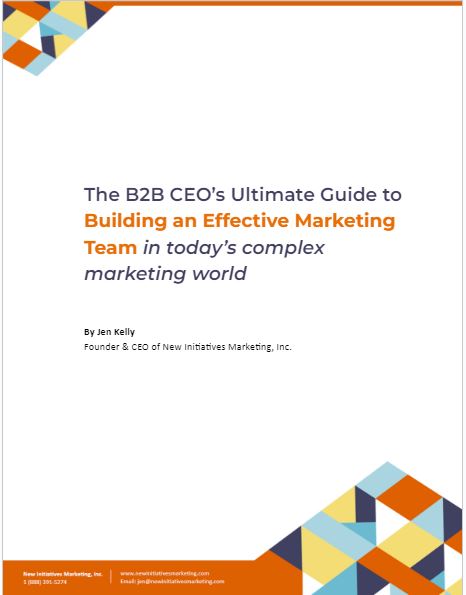Your business website can often be an overlooked part of your sales process.
A well-designed visually and technically modern website is one of the most effective tools for your business. However, many websites may not be designed and optimized to work for your business to promote and support the sales process.
Learn to think about your website as your 24/7 sales person. It can help to answer questions your customers have that you are not able to answer (because it is after hours or because they haven’t contacted you yet). It can help to build trust. It is always available.
Think deeper about your website. If it were to be your 24/7 salesperson, would it be able to help in these ways:
- Does the information on the website help the user understand your services?
- Does your website explain the type of customer you help? Is that explanation on the front page so the user can figure out quickly if they’re in the right place to get help from your company?
- Is there a way the user can contact your company or if not ready to contact you, can they stay in touch by signing up for a newsletter or downloading an ebook or checklist that can help them immediately?
If your website didn’t pass the 24/7 test, here are four ways to fix it.
Write and publish high-quality content
High-quality content means helpful content that explains ways your business can solve problems for your clients. Your content needs to be written in a way that your clients can understand.
High-quality content does not mean that you are using sophisticated language and industry terms, unless your clients are at that level of understanding. It may mean that you are explaining concepts (that feel to you like they are written) in a basic way. Keep in mind that your purpose is to have your potential client understand that you can help them, you don’t want to be talking over them. Confused people never buy.
Seek to educate and explain. Seek to win over your website visitor by explaining what you do and how you can help in a clear, concise way. This is high-quality content. Hubspot, a leading content management software vendor in the marketing space gives
Search Engine Optimization
Honestly, search engine optimization, or SEO can get a bit overwhelming. The thing is, it is needed because great SEO “tells” Google what your web pages are about so that Google can display them in search results.
In a very simple example, think of it this way…your ideal client types their problem/need/question into Google to find an answer. How does Google know that one of your blogs answers that question? If you don’t have the right search terms or keywords (SEO) in that blog post, Google doesn’t know to include your blogs in the results. Do you see how your company’s information could be missed? In this case, your 24/7 sales person isn’t doing a great job.
SEO is a key part of ensuring your website is really working for your business. You can get a keyword or SEO audit from most marketing companies who build websites. And if you’ve never heard of this, don’t worry, it is something that can be fixed. After all, you’ve done just fine with your business up to now, fine tuning the SEO can only make it better.
Call-to-action on the website
Whether you sell a product, course, service online or not, encouraging the user to take the next step is key. The user needs to know what they could do next if they are ready.
- Can they call you? Is your number easy to find?
- Should they email? Is the email easy to find?
- Should they use chat?
On the other hand, if your website visitor is interested in what you have but are still at the information gathering stage, is there a way they can stay in touch? This would mean a way to:
- Sign up for a newsletter
- Sign up for a free download
- Listen to you on your podcast or find out which event you are speaking at next
- Keep in touch with you at their pace
Website analytics
You want to be able to find out how your website is doing. In order to know that your website is “doing” anything, you’ll want to be able to get answers to questions like:
- Where are people coming from before they get to my website?
- Are our online ads working to bring traffic to our website?
- Did that talk I gave last week at the industry even bring in any traffic to my site?
These questions and more can be answered by looking at your website analytics. Make sure your website has Google Analytics installed and if not, ask a web professional to help you do that this week. Google Analytics is free.
A word of warning, when getting started with analytics, it can be very overwhelming.
Google Analytics or GA for short, is powerful. It can show you numbers and graphs and information that can make even an experienced marketer’s eyes glaze over.
One of the best ways to get started and to find them helpful is to first ask a question about your website (three examples are given in the bulleted list in this section) and then go into GA to get the answer. This will help you to use analytics to run your business, not the other way around.
Have a look at your analytics at least once a month, unless you are an ecommerce site selling products/services daily, in that case, be sure to look at your sales analytics daily.
You have a sales team
I hope this explanation has encouraged you to look at your website as part of your sales team instead of it being just another thing you have to look after or worse yet, something you ignore. Each of these suggestions are easily implemented by a marketing professional who views websites in this way. If you tackle one thing per month for the next quarter, you’ll be off to a great start.
Jen Kelly runs New Initiatives Marketing (NIM), the marketing team for businesses who don’t have a marketing team. With implementation and execution as NIM’s focus, we’ve been working world-wide remotely since 2009. NIM has supported marketing strategy execution in companies as large as the Fortune 50 and those as small (but growing) as $2M in annual revenue.


